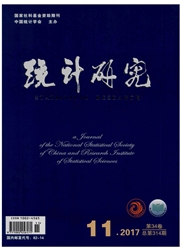

 中文摘要:
中文摘要:
本文创新性地从房价上涨的视角对我国地区经济收敛趋缓现象做出解释。文章首先提出房价会影响劳动力流迁和企业选址决策进而影响地区经济收敛的理论机制,接着采用2000--2014年中国35个大中城市的面板数据进行实证检验。结果发现,以大中城市为样本的中国经济发展不存在绝对收敛,但存在条件收敛趋势,高房价会抑制这一趋势并拉大城市之间的经济差距。不考虑时间效应时,地区经济增长收敛速度为0.129%;而考虑时间效应时,经济增长收敛速度会提高0.194%。受房价因素的影响,地区经济收敛趋势依赖于与房价的共同作用,经济增长本身不再收敛,甚至呈现出发散的趋势;且这一效应存在明显的时间段差异。
 英文摘要:
英文摘要:
This paper attempts to give an explanation of regional economic convergence from the perspective of rising housing prices. We conclude that housing prices can impact the regional economic convergence by the mechanisms of labor migration and business location with a literature review of previous studies and conduct an empirical analysis by using the panel data of 2000--2014 periods for 35 cities in China. We find that absolute convergence trends do not exist in China, but there are the trends for conditional convergence, the rapid rise in house prices will curb this trend and enlarge economic gaps among cities, and these effects are significant differential in a different time period.
 同期刊论文项目
同期刊论文项目
 同项目期刊论文
同项目期刊论文
 期刊信息
期刊信息
